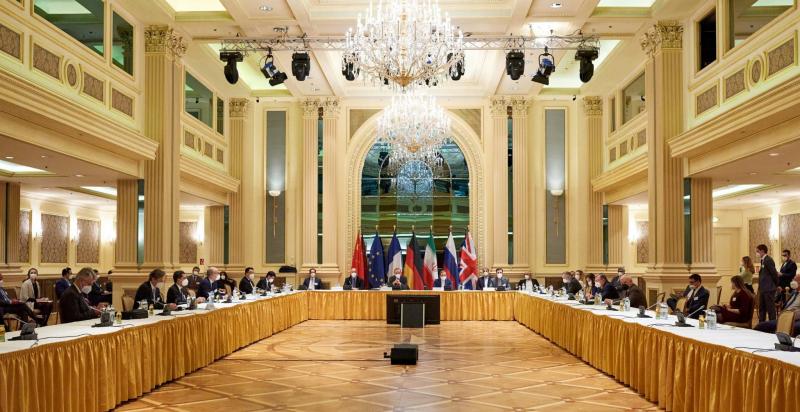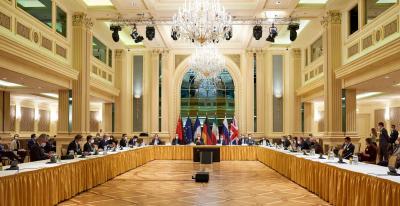Vienna talks are set for a sixth round following substantial progress on key principles regarding the return to the nuclear agreement signed in 2015, from which Washington withdrew in May 2018 during President Donald Trump’s administration. However, "outstanding issues" persist in the discussions, particularly the "sanctions" imposed on Iran and Tehran's desire for their lifting. Meanwhile, Washington and the participating European negotiators are pushing to include "Iranian behavior" in the region and Iranian missiles within the agreement, which Tehran rejects. Negotiators are racing against time to reach a "common ground" between Washington and Tehran, a ground described as "possible" by U.S. diplomats, considering some progress made in previous Vienna rounds. Nevertheless, "there are still many steps to take in the upcoming period," according to the U.S. State Department.
**Progress and Outstanding Issues**
The U.S. State Department spokesperson, in a briefing to Sky News Arabia about the overall assessment of Vienna talks after five rounds, indicated that the American delegation, led by the special envoy for Iran, Robert Malley, left Vienna after the fifth round and will return to Washington for consultations. He discussed the progress made but noted that several unresolved issues still prevail. He pointed out that "these last few rounds of discussions have helped clarify the options that Iran and the United States should take for a mutual return to compliance with the Joint Comprehensive Plan of Action (JCPOA)." He highlighted that "substantial progress continues regarding the language necessary to address the nuclear and sanctions-related issues, but outstanding matters remain about both," adding that "there have also been fruitful discussions about next steps, but more work still needs to be done on this front."
According to Politico, citing U.S. diplomatic sources, "sanctions are the point of contention in the Vienna talks with Iran; due to disagreements over the list of sanctions to be lifted." The spokesperson for the U.S. State Department stated last Thursday that Washington anticipates a sixth round of indirect negotiations with Iran, with expectations that discussions may continue into further rounds to revive the nuclear agreement. While Russia's permanent representative to international organizations, Mikhail Ulyanov, had previously predicted that the earlier round (the fifth) would be the last, negotiators left without a deal, leading to indications that talks will extend into forthcoming rounds. The EU envoy coordinating the negotiations to revive the Iranian nuclear agreement, Enrique Mora, believes that there is potential for an agreement in the new (sixth) round.
**Common Ground**
Commenting on the optimistic expectations for reaching an agreement during the sixth round next week, Iranian affairs researcher, Mohammed Khairi, stated in an exclusive interview with Sky News Arabia that such expectations have been circulated since the first round, with every round thought to be the decisive one, whether by the United States, Europe, or even Iran itself. However, after five rounds, no agreement has been reached. He noted that "there are several important issues that require consultations and need solutions. In any case, I do not believe an agreement will be reached before the Iranian presidential elections," suggesting that "the U.S. and Europe are trying to push for an agreement to revert to the nuclear deal before the elections, fearing that a hardliner president may complicate Iranian concessions to America."
The Iranian affairs researcher continued: "After the Iranian elections, the outcome will depend on the Iranian negotiator and the nature of the concessions they can offer, as well as on Iranian balances and the nature of Iran's role in the region." He explained that Washington has specific conditions regarding sanctions; it refuses to release frozen Iranian funds unless Iran comes back to its commitments under the agreement. It also seeks to curb Iranian influence in the region and prevent support for militias, which are ideological matters for Iran that it will not easily concede.




